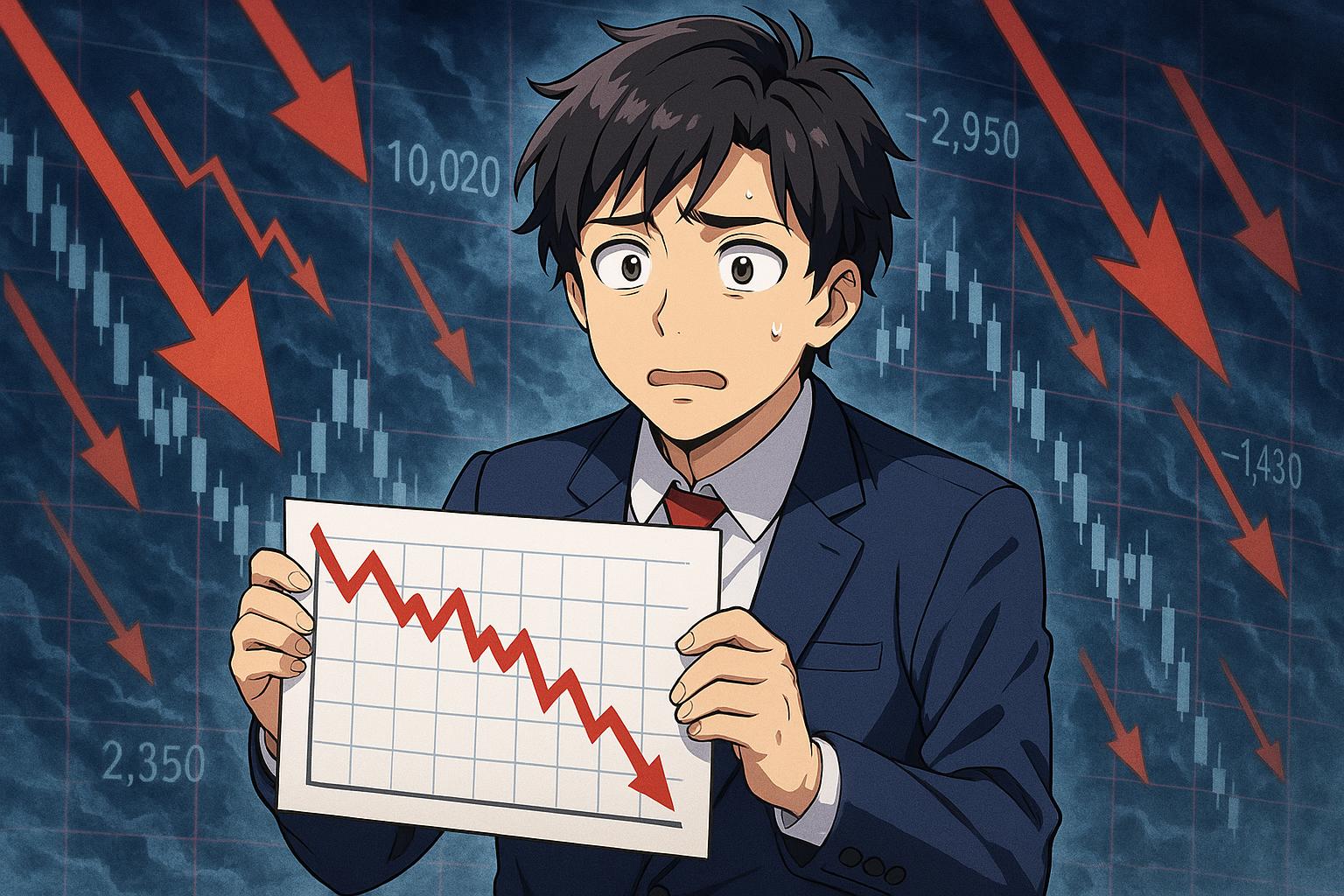In the current climate of financial uncertainty, recent data reveals that nearly a quarter of retail investors have sold investments at a loss over the last year. This trend arises amid ongoing market volatility, largely attributed to external economic pressures and policy changes. According to exclusive figures from Alliance Witan, fears over further declines remain the primary motivation for these losses, with 36 per cent of respondents expressing concern that their holdings would continue to diminish in value.
This phenomenon is particularly striking when juxtaposed with the conventional wisdom that asserts investors should maintain their positions over a longer horizon—ideally five years or more—to weather the inherent fluctuations of the market. Alliance Witan surveyed 1,000 UK adults who possess at least £10,000 in investable assets, underscoring that the emotional toll of market downturns can lead to rash decisions.
Recent months have been tumultuous for global markets, exacerbated by political turbulence, such as tariff announcements that resulted in widespread panic selling. This turmoil led many to liquidate investments in a bid to preserve what little value they had left. Although selling at a loss can sometimes be unavoidable, Mark Atkinson, senior director of client management at WTW, cautions against impulsive reactions. He notes that “knee-jerk decisions based on short-term market volatility can backfire on returns," suggesting that a temperate approach yields greater long-term benefits.
Interestingly, the emotional aspect of investing is not unique to the UK. Data from the United States reveals that retail investors sold off stocks at the fastest pace in years last October, with a staggering $15.64 billion in stocks liquidated—the most significant monthly outflow since 2021. This trend reflects a clear shift from previous factors that had driven retail investment, such as no-fee trading and pandemic stimulus. Institutional investors mirrored these moves, albeit to a lesser degree, selling $18.66 billion in the same period.
The statistics paint a broad picture of investor behaviour during volatile times. A significant portion, approximately 29 per cent of those surveyed, indicated they sold at a loss due to financial emergencies, while 20 per cent needed funds for specific life events. Financial advisors generally recommend that individuals should only invest money they can afford to lose and should create emergency savings sufficient to cover three to six months’ worth of living expenses. This practice not only mitigates the pressure to sell during downturns but also allows investments to mature and grow, as historical trends often demonstrate significant long-term returns.
Atkinson reinforces that while the current market conditions can cause discomfort, patience is a vital virtue in investing. He cites a previous analysis by Alliance Witan, which indicated that investors who remained invested through periods of uncertainty frequently enjoyed better long-term returns than those who reacted hastily. The message is simple yet profound: those choosing to ride out market storms are likely to reap the benefits in the future.
As retail investors navigate this challenging landscape, it is critical to maintain a disciplined investment strategy. Experts advocate practices such as reassessing asset allocation and incorporating diversification, which can be instrumental in insulating portfolios from volatility. For those approaching retirement, a shift towards more stable assets, like bonds, may offer additional protection against sudden market dips.
In conclusion, today’s volatile market conditions serve as a stark reminder of the importance of emotional discipline in investing. While short-term fluctuations can incite fear and prompt impulsive decision-making, history suggests that maintaining a long-term perspective is more likely to lead to favourable outcomes.
Reference Map:
- Paragraph 1 – [1], [4]
- Paragraph 2 – [1], [2], [5]
- Paragraph 3 – [1], [3], [6]
- Paragraph 4 – [1], [7]
- Paragraph 5 – [6]
- Paragraph 6 – [2], [3]
- Paragraph 7 – [1], [4]
Source: Noah Wire Services
